When it comes to writing your book, genre is an important characteristic to keep in mind. It is the major classification used by publishers to make decisions regarding a book. They will decide what book they want to publish, the editing and stylistic changes, artistic choices, and more. No matter if you are looking to work with a traditional publishing company or if you are looking to self-publish, it is important you stay up-to-date with the latest genre specifics. It could be the difference between a good book and a great book!

What’s In A Genre
Genre, in its most simplistic definition, is a way in which we can organize books into categories. Depending on where you look you will find slightly different definitions. I will pull parts from two of the best definitions when explaining genre. First, the Merriam-Webster definition: “a category of artistic, musical, or literary composition characterized by a particular style, form, or content.” This is probably the most succinct way to explain genre; however, I don’t believe this provides the most important information. When doing research for this blog I ran across the Wikipedia article for genre. The first sentence stood out to me: “with socially-agreed-upon conventions developed over time.” The way I would best define genre is: a category of work characterized by socially-agreed-upon conventions, such as style, form, or content, developed over time.
What I want to highlight is the “socially-agreed-upon conventions” aspect of genre. I believe the lack of this awareness is one of the biggest downfalls of self-published authors. Genre’s are how publishers will sort their authors, how bookstores group their shelves, how organizations hand out awards, and how readers will begin their book search. Needless to say, every aspect of the writing world relies upon a book’s genre. All too often self-published authors look to break the mold or just flat out ignore certain aspects of their genre. A book becomes successful because the author, editor, publisher, marketing agency, and other professionals know and use to their advantage the conventions of genre. Remember, these conventions are formed from a consensus among authors, readers, publishers, seller, reviewers, and more. Make sure everyone who comes in contact with your book knows what they will expect.
Popular Genres
In the blog today, I don’t want to dig deep into any of the genres or the genre-specific conventions you should expect to encounter. Though you should be on the lookout discuss a few genres in more detail soon. Let’s take quick overview at some of the more popular genres. We generally categorize genres within fiction and non-fiction and I have laid out three popular genres within each of these categories.
Historical Fiction
Historical fiction is fiction based within a certain time period. The characters and events may or may not be based on real life people or events, but what occurs in the book is fictional. For example, you may place your book within the American Civil War but your characters are fictional.
Mystery
Mystery is a widely popular genre with famous authors like Agatha Christie, James Patterson, John Grisham, and others. The plot of these books are all focused on solving a crime or uncovering the facts of certain events.
Fantasy
This genre is filled with different sub-genres such as high fantasy, low fantasy, and others. Stories in this genre revolve around mysterious worlds created by the author, magic beings found in our world, or a combination of the two.
Historical Non-Fiction
These books detail historical events and are fact and research-based stories. They chronicle events like a war or battle, the creation of a product, idea, or tool, a look into a certain time period, or other historical events.
Business
This genre is something of a sweet spot for us. These books can:
- detail the history of a business or important business person,
- teach a specific skill,
- discuss certain financial or institutional processes, or
- focus on any other topic around businesses and the people who run and work with them.
Biography/Memoir/Autobiography
These are three unique genres, each detailing slightly different areas of a person’s life but are grouped together because of how close they are related. A biography is a retailed history of a person’s life, written by another person. An autobiography on the other hand is written by the subject of the book. Memoirs are similar to these two genres, however, they usually delve deeper into specifics of the person’s life, their actions, their memories, their feelings, and their thoughts.
Finding Your Genre
If you do a simple Google search for genre you will find many different choices to choose from. You can do lots of research to find the genre you want to write and the specifics of that genre. More than likely you will have the genre of your book pretty much settled when you write, as you won’t all of a suddenly switch from historical fiction to fantasy or from autobiography to business. You will more than likely need to take a look at your book and to find the specifics of that genre which people will be looking for. Find your book’s style and make it yours!

Leave a Reply